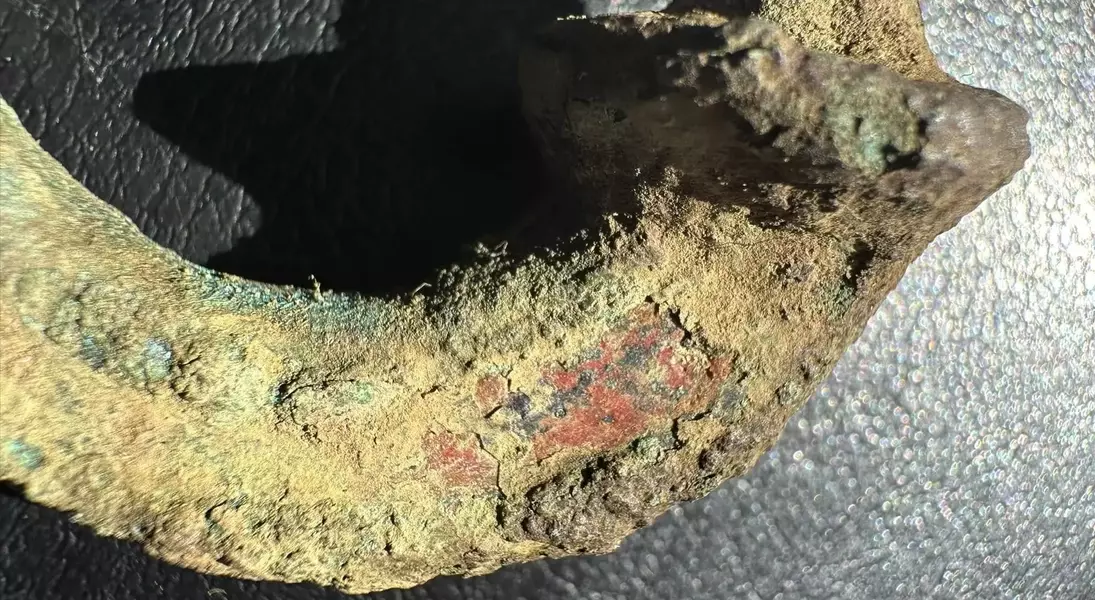
A remarkable discovery has taken place at the RAF Valley station in Wales, where military personnel and veterans have unearthed significant 2,000-year-old Celtic artifacts. This unexpected find, officially recognized as treasure, includes rare components of a chariot and horse gear. The items are believed to be part of a historical hoard first discovered in the 1940s, shedding light on the rich cultural heritage of the region.
The excavation project, led by the Defence Infrastructure Organisation (DIO), involved members of Operation Nightingale, an initiative aimed at supporting military personnel and veterans through archaeological activities. Among the discoveries is a horse bit dating to around 60 CE and a terret ring, used for guiding reins, which features a distinctive red inlay—a rarity in Welsh archaeology. These findings provide valuable insights into the religious practices of the Celtic people who once inhabited the area. Station Commander Gez Currie expressed pride in the role of RAF Valley in preserving this ancient history, emphasizing the importance of being responsible stewards of the land.
The unearthing of these artifacts offers a fascinating glimpse into the past, connecting modern-day military efforts with ancient traditions. The preservation and study of such treasures not only enrich our understanding of history but also inspire a sense of continuity and responsibility across generations. The involvement of military personnel in this endeavor highlights the positive impact that interdisciplinary collaboration can have on both personal development and historical conservation. As we reflect on these discoveries, it becomes clear that the legacy of the past continues to inform and shape our present, fostering a deeper appreciation for the world we inhabit.
